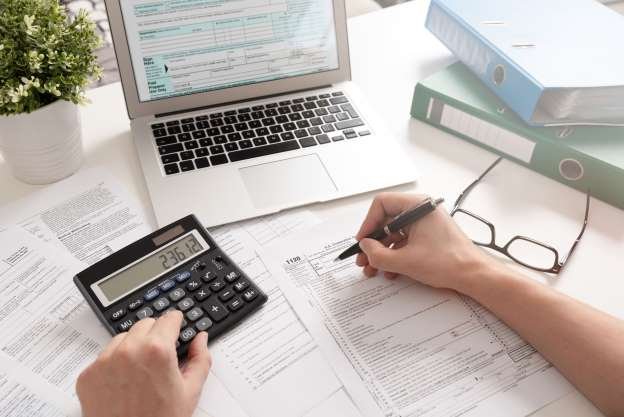Money
ITR Filing for AY2019-20: How to save tax if you have missed the deadline for submitting proof of investments

Income Tax Return 2019: Employers ask employees to submit proof of investments made over the year, so as to adjust tax deducted at source (TDS). The last date to submit proof of investments varies across employers. It is generally required to be submitted between the months of January and March. If you don’t submit these documents, then your employer will end up deducting more TDS from your salary.
Employers in India have to follow the income tax law which requires them to deduct TDS from employee’s salary according to income tax slabs. When the financial year is about to end, the employers check the tax liability of employees and adjust their TDS deductions in their pay accordingly. This is when you are asked to submit your proof of investments. If the employer has deducted less TDS in the year, then TDS deductions would be increased in the salary of the remaining months of the financial year.
If you miss the deadline to submit the proof of investments, or if you have not made any tax-saving investments over the financial year, you may have to pay more tax. However, every year you have time till 31 March to make suitable tax-saving investments and claim TDS refund at the time of filing ITR. If you have made any investment before 31st March, you can claim TDS refund at the time of filing ITR, even if you have failed to submit the investment proof to your employer.
Following are the exemptions and deductions that you can claim even after missing the deadline for submitting proof of investments:
1. Claim HRA Exemption
You don’t have to panic if you have not submitted rent receipts to your employer. You can still claim house rent allowance (HRA) at the time of filing your income tax returns. Adjust the taxable portion of your HRA while filing your tax return. You just need to have rent receipts and PAN of the house owner, if your rent is more than Rs 1 lakh.
2. Claim the following deductions under Section 80C with no additional investments
a. Employee’s share of EPF contribution: A certain sum gets deducted from your salary each month for a contribution towards Employees Provident Fund Scheme. This sum is generally 12% of your basic salary.
b. Children’s tuition fee: The sum paid towards children’s (maximum 2) tuition fee can be deducted under Section 80C. This fee includes payments made to a school, college, and university in India.
c. Home loan principal repayment: The sum paid towards home loan principal repayment is allowed for deduction. This loan can be for purchasing or constructing a residential housing property.
d. Stamp duty & registration fee: The sum spent on transferring the property to the taxpayer’s name is eligible for deduction. However, if you sell the property within five years from the date of purchase, then the claimed deductions would be added to your income and will be taxed in the year of sale.
e. Life Insurance premiums: Premiums paid towards life insurance for self, spouse, and children are eligible for deductions. If the policy is issued on or prior to March 31, 2012, insurance premium up to a maximum of 20% of the sum assured is allowed to be claimed as a tax deduction. For insurance policies issued on or after April 1, 2012, an annual premium up to a maximum of 10% of the sum assured is tax deductible.
3. Claim medical insurance premium under Section 80D
You are allowed to claim Rs 25,000 paid towards the premiums of medical insurance for self. It is Rs 50,000 if the premiums are paid towards medical insurance for parents aged above 60 years. Otherwise, this amount is limited to Rs 25,000 only.
An annual deduction on expenses related to health check-ups of Rs 5,000 can be claimed. This limit is inclusive of the health check-up expenses of all the family members, including the taxpayer’s spouse, children and parents. This deduction limit also forms a part of the deduction limit mentioned above.
There is no reason why you should panic if you miss the deadline to submit proof of investments to your employer. You can claim a TDS refund at the time of filing ITR. Do make sure to keep all the proofs safely with you, should the assessing officer ask for them later.
-

 Money7 days ago
Money7 days agoYour Money, Your Future: Smart Money Management for the Middle Class
-

 Money6 days ago
Money6 days agoBudget 2024: 3 Stocks to Watch with Potential Gains
-

 Money6 days ago
Money6 days ago5 Penny Stocks Gained Up to 23% Last Week: Risky or Rewarding?
-

 Health6 days ago
Health6 days agoHow to Spot Typhoid and Stay Healthy
-

 Money3 days ago
Money3 days agoBihar & Andhra Pradesh Get Infrastructure Boost: Cement Stocks in These Regions Poised to Surge
-

 Money2 days ago
Money2 days agoNew Pension Scheme for Minors in Union Budget 2024: NPS Vatsalya Explained
-

 Money3 days ago
Money3 days agoNavigating Gold Ownership in India: Limits, Taxes, and Your Rights
-

 Health22 hours ago
Health22 hours agoR Madhavan’s Weight Loss Secrets: Intermittent Fasting and Plenty of Fluids









